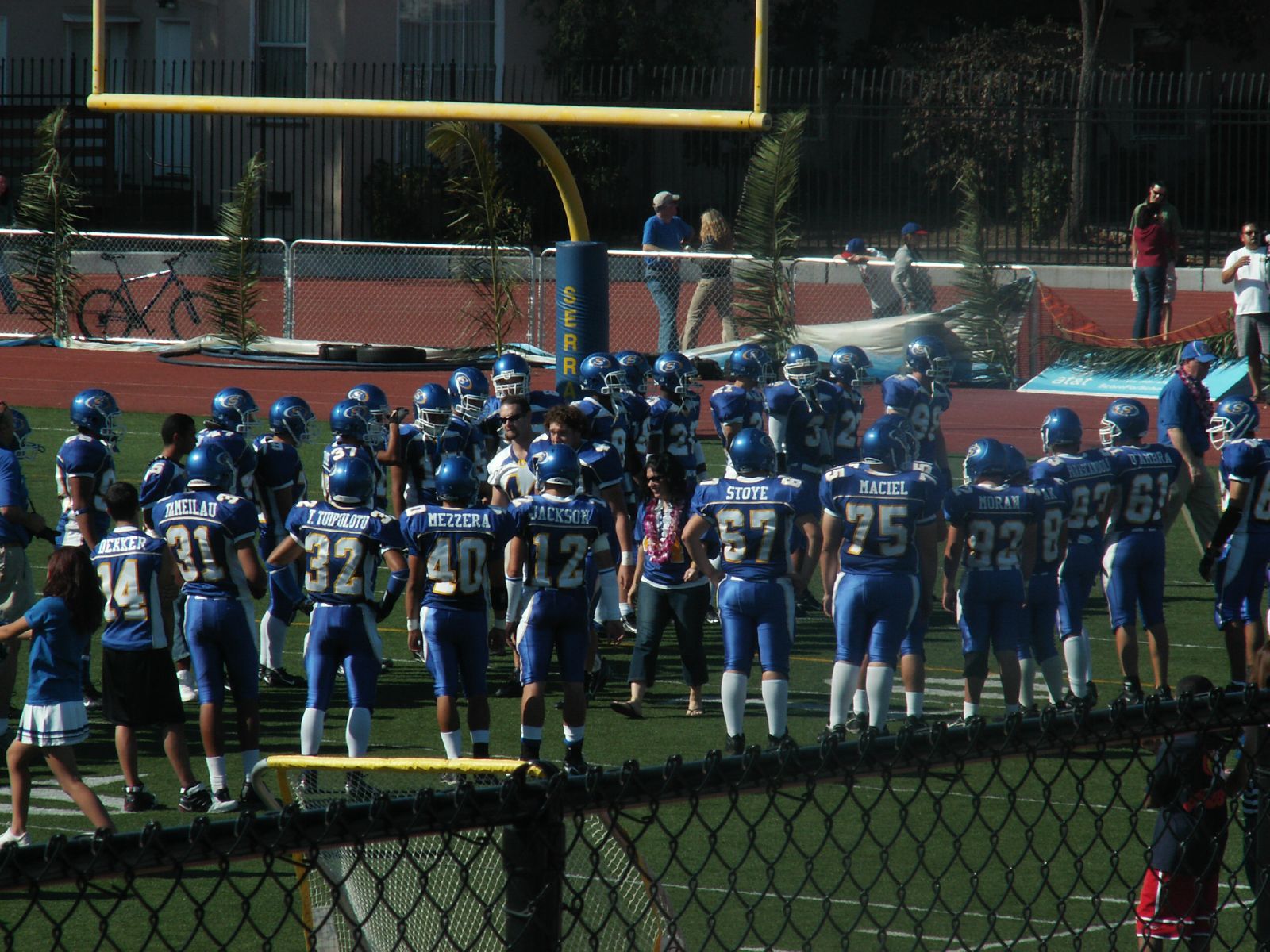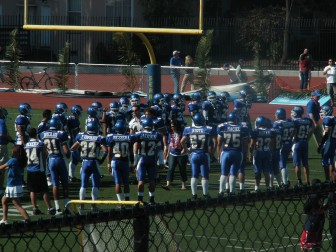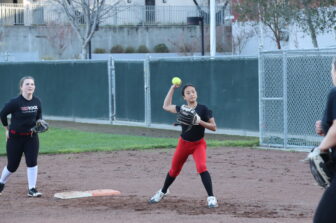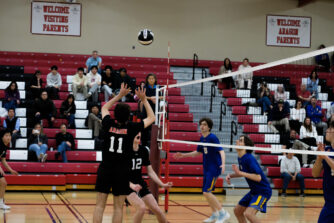

The green turf and white markers inside the recently-dubbed Tom Brady Family Stadium will become abnormally quiet the next two years during what would typically be recognized as “Central Coast Section playoff season” in late-November and early December for Maxpreps’s number-97-ranked team in the state, the Serra Padres. After electing to forfeit the newly-added consolation match against the Milpitas Trojans reportedly in an effort to ensure the safety of their players just hours before the scheduled 7 p.m. start-time on Dec. 5, the Padres suddenly became the subject of a month-long investigation until it was announced on Jan. 22 that the team would be banned from postseason contention in the CIF CCS Open Division – effective through the 2016-2017 season.
In addition to their two-year postseason ban, Serra’s sudden and untimely decision also cost them a financial restitution totalling over 6,000 dollars. The fine will supposedly cover the game officials, concession revenue and gate receipts originally intended to be collected from the Friday night matchup at Milpitas.
The CCS Board of Managers also voted 38-6-3 to accept Commissioner Nancy Lazenby Blaser’s recommendation to change Serra’s membership status in the 146-school section from a “member in good standing” to that of “probationary membership.” In effect, the school’s actions will be monitored such that any more violations could result in even stiffer consequences and possible expulsion.
Serra football head coach Patrick Walsh, athletic director Dean Ayoob, and principal Barry Thornton were given a chance to defend their decision on Jan. 28 in front the Board of Managers.
In attendance was longtime Santa Clara Valley Athletic League commissioner Tony Nunes, who represented the handful of individuals under the impression that Blaser’s punishment was not harsh enough.
At the meeting, Nunes directly addressed Walsh, with the following conversation:
“You would have forfeited in the winners’ bracket?” asked Nunes.
“No, I would not have played the game,” Walsh responded.
“I beg to differ with you,” interjected Nunes.
Walsh asserts that he and the administration unanimously made the decision out of concern for his players’ safety in what they believed was nothing more than a meaningless game between two teams that have already been disqualified from championship contention. In fact, according to Thornton, “The tipping point was the previous day, five additional starters had pulled out, some their parents had pulled them. [Walsh] felt that playing a game that evening was an unacceptable safety risk.”
Serra’s decision came even after the memo Blaser sent to schools in early November warning schools against forfeiting any of the scheduled playoff game under the new extended bracket passed by the CIF in Oct. The 9-1-3 vote conducted in late October approved the implementation of a trial-run in preparation for a possible future structure that includes 13 divisions competing for the State Bowl Championships.
“It was rare that schools who know the rules deliberately break them. This is the most complex case,” said Blaser, who had contemplated a three-year ban from the playoffs. “If Serra was concerned with the playoff format and safety concerns, it should not have agreed to enter the playoffs.”
Under the new playoff bracket format, Serra’s 28-0 loss against the fifth seed Los Gatos inserted them into the consolation semi-finals match against Palma-Salinas. A 28-14 victory over the Chieftans advanced them to the consolation finals against Milpitas. As it was later revealled, the Padres and Chieftains had agreed beforehand to play their starters sparingly in what was only considered a “light scrimmage.” Walsh had reportedly proposed a similar arrangement to Milpitas football head coach Kelly King, who turned down the offer and proceeded with their preparations for the scheduled matchup. Consequently, Walsh began to deliberate as to whether or not to compete in the scheduled matchup – eventually consulting with his former coach and current mentor, Bob Ladouceur, prior to the notifying King of his official decision just hours before the game.
“We were disappointed we weren’t able to play. Serra made a choice for the best interest in their school, but not in the best interest in our school. We didn’t like the consolation bracket, either. But we felt it was our obligation to play,” says Milpitas athletic director Jeff Lamb.
“While I take no enjoyment from handing down these sanctions, it is the duty of the Commissioner to uphold the integrity of interscholastic athletics and the bylaws as enacted by the CCS member schools,” states Blaser.
Since the sanctions were issued, many came to the defense of Walsh’s decision and stood by the back-to-back West Catholic Athletic League champions and 2013 Open Division champions. A former Serra football player started a #FreeSerra Twitter account and obtained 379 signatures for his online petition. Mercury staffer Scott Herhold believes that the blame should fall more on the consolation bracket and that the punishment should be lightened.
“I’m sympathetic to Serra’s Walsh, though not without criticism. Consolation games are basically meaningless events, designed to bring in extra revenue,” says Herhold. “The penalty should be drastically reduced. And the coaches who share Walsh’s concern about the meaninglessness of consolation games should come to an understanding about lighter rules for these contests.”
“I stand behind my decision to this day and will never feel otherwise. At the time of my decision, I only had the best interest of our players’ health in mind,” affirms Walsh. “In the final analysis, I asked myself, ‘what can I live with?’ I came to the realization that I could not live with the idea of a kid getting a concussion or tearing an ACL. I feel like I did the right thing.”



